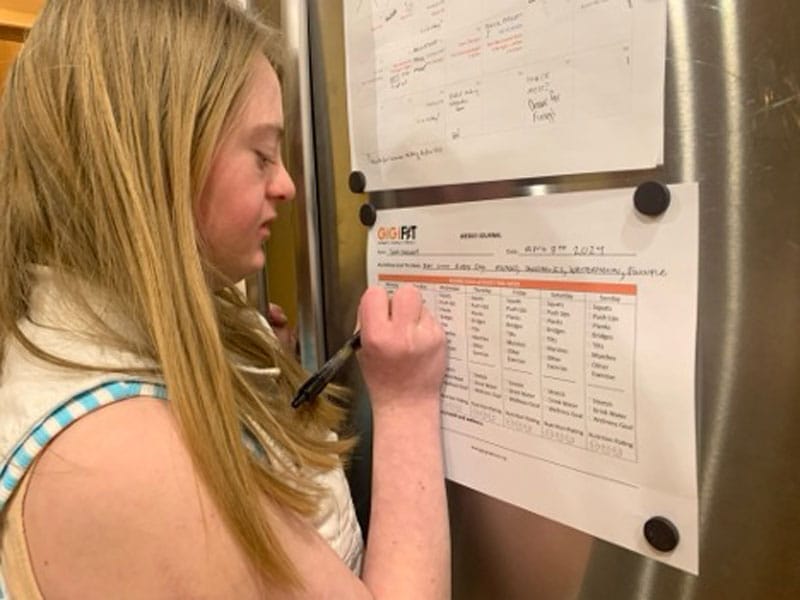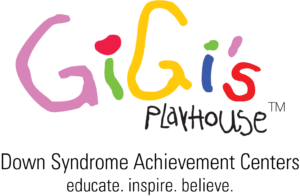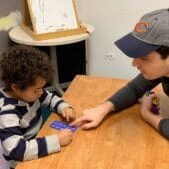GiGiFIT Movement Tracker Helps Build Daily Wellness Habits
by Kim Hanna
It’s a universal issue: most of us struggle to build fitness into our daily lives. In theory, it sounds easy, and it is…until life happens. We get busy, priorities shift, and tasks that were once daily routine get pushed to the back burner.
As parents, we naturally want to instill healthy habits into our kids, and as a mother of a teenage daughter with Down syndrome, I feel an added responsibility.
Low muscle tone (hypotonia) and joint laxity are commonly associated with Down syndrome. Because of this, my daughter needs to move her body even more consistently than the typically developing population. We may increase our fitness to lose weight, train for a race, or just generally “get in shape,” but people with Down syndrome need daily exercise to consistently stand up tall, walk to the bus stop, enjoy a dance party, and to have the stamina to work a job.
So many teens and adults with Down syndrome face significant weight gain in their teen and adult years because of hypotonia. This weight gain can lead to hip, back, knee, and other joint issues early in life. Will my daughter follow that path? What can I do to combat these challenges? What can we all do as parents?
As a parent, there is no end to “shoulding all over ourselves”. I should make sure we have healthier food choices in the house, I should take my daughter out for a bike ride, I should do a better job of restricting her tech time, I should set a better example of my own nutrition and fitness habits. I should, I should, I should… It’s a never-ending cycle that has nothing to do with a disability and everything to do with being a parent.
Luckily, participating in weekly GiGiFIT classes has helped ease my worries! We can have confidence that the movements and class structure are deeply researched from a physical therapy standpoint and address joint laxity, hamstring tightness, low muscle tone, and many other items that are common challenges for individuals with Down syndrome. It’s an incredible start! But what about the rest of the week?
We know that individuals with Down syndrome often thrive on routines and repetitions, some even refer to this phenomenon as “the Groove.” Because of this, I’ve been in search of easy solutions and routines that fit into our daily family life; solutions that can address multiple items. My dream solution is a tool where:
- My daughter can hold herself accountable.
- It takes minimal effort by me.
- It capitalizes on the fact that she LOVES routine and consistency (in other words, she hates change).
- Enables her to feel proud of her efforts.
- It could help the whole family, not just her.
- It can help nutrition and fitness be a natural and consistent part of our daily life and daily conversations.
Enter the GiGiFIT Movement Tracker! All we had to do was print out the one-page document, stick it on the fridge, and we’ve seen magic happen! Our daughter can set a general wellness goal for the week, track her activity, and celebrate her progress! Every morning, she considers which items she will try to complete, and before bed she is encouraged to check off her progress from the day and make a judgment about the quality of her nutrition choices.
Better yet, it has given us an easy opportunity to encourage better choices. For example, before bed, we can encourage 10 “marches” to gain an easy checkmark that we missed earlier in the day. When we go out to dinner, I can tell her that if she orders water instead of lemonade, she gets a smiley face on her nutrition log. While the desired outcome doesn’t work every time, it has become a part of the conversation.
Though I know life will continue to be hectic and priorities will shift, I feel great knowing that we’ve incorporated wellness and nutrition into our daily family life with the help of GiGi’s Weekly Wellness Journal!

BONUS:
There’s a growing body of research that suggests exercise (especially of larger muscle groups like thigh muscles) may help slow the onset of Alzheimer’s.
Could physical fitness be the elixir that both addresses low muscle tone and slows Alzheimer’s? While we can’t be certain, it can’t hurt to do all we can!!
Recent Posts




